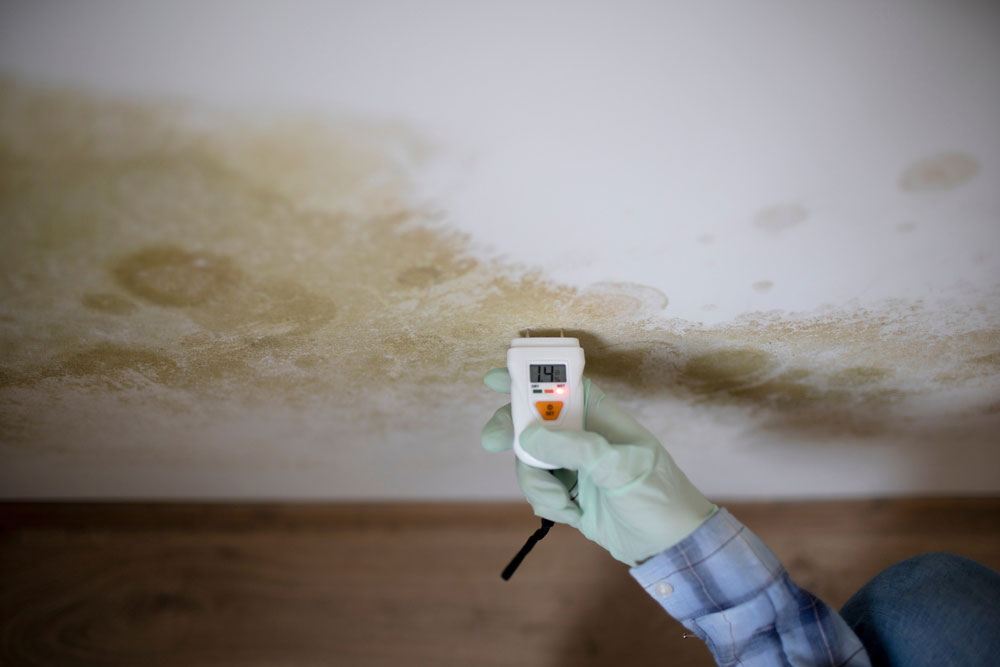Exposing Hidden Dangers: Understanding Mold and Water Damage Claims
Mold damage in Florida is a prevalent issue that poses serious health risks and property damage. With the state’s humid and warm climate, it creates the ideal conditions for mold growth. Mold can infiltrate homes, offices, schools, and other buildings, thriving in damp areas such as basements, bathrooms, and kitchens. It not only compromises the structural integrity of the affected property but also triggers respiratory problems, allergies, and other health issues.
Alarming Statistics of Water and Mold Damage
stats gathered by waterdamagedefense.com and realtimelab.com
- Of 21.8 million people who have reported to have asthma in the United States, 4.6 million of those cases are estimated to be attributed to mold exposure in the home.
- The average home leaks close to 10,000 gallons of water every year.
- Approximately 45 million builds in the United States have unhealthy levels of mold.
- 14,000 people in the United States experience a water damage emergency at home or work daily.
- 37% of United States homeowners claim to have suffered losses from water mange.
- $2.5 billion is the annual cost to insurance companies from water damage and mold with the average water damage claim being $6,965.
Water damage is the second most common type of property damage claim after wind and hail damage
The Reality of Mold Damage Claims
Mold insurance claims are property damage claims that seek compensation for cleaning and repair costs. Not all homeowner’s insurance covers mold damage and when they do these claims usually have lower coverage limits there has to be a reason for the mold growth such as an unforeseen disaster. If the claim is caused by a preventable issue, such as poor maintenance or poor ventilation, it is likely the claim will not be covered. There are some accidental damages covered if they cause mold including:
- Explosions
- Falling objects
- Lightning
- Smoke and fire
- Tornadoes
- Hail
- Vandalism
Mold has a distinct smell that can be compared to rotting leaves and can be seen on walls, ceilings, and wood but in some cases, it can remain undetected behind walls or other permanent fixtures. If you see or smell mold, call your insurance company and begin documentation.
If you can file a mold damage claim, it can tend to be a lengthy process. Homeowners and businesses should file a claim as soon as possible after discovering mold damage. Homeowners will typically need to provide documentation such as photos and videos and a detailed description of the cause of mold growth. Businesses can expect the same if their business insurance policy covers it, but they will also need to provide more detailed documentation including financial records or inventory lists.
To help strengthen your claim, hire a mold inspector to assess the extent of the damage and provide a detailed report with a description of the damage, the cause of mold growth, and recommendations. It is also recommended to keep receipts for all mold remediation-related expenses.

Finding Success with Water Damage Claims
An alternative route is filing a water damage claim since mold commonly stems from water damage. Water damage claims seek compensation for the cost of repairs for damage caused by water, this includes mold growth. Water damage can happen for numerous reasons including:
- Roof leaks
- Toilet leaks
- Sprinkler systems
- Water heaters
- HVAC systems
- Ruptured pipes
- Low-quality pipes or materials
- Poor installation or maintenance
- Appliance malfunction or leaks
- Sewer backups
- Natural disasters: Hurricanes, Heavy rainstorms, Rivers or lakes overflowing
Regardless of how it happened, any kind of water damage can facilitate the growth of mold as soon as 24-48 hours. Water damage is noticeable and if you find it in your home you should follow three steps immediately.
- Immediately turn off your water to minimize any further damage caused by the water.
- Contact a plumber if you notice water damage, the plumber should be able to fix broken pipes or leaks to help prevent further damage.
- Contact your insurance company as soon as you dealt with the immediate problem and file a claim.
The statute of limitations for property claims does vary based on the case but it commonly allows for five years for a breach of a property insurance contract, four years for damage caused by neighboring property, or three years for claims related to damage from natural disasters. The statute of limitations begins from the date of the incident or the date the damage occurred.
Helpful Tips to Help Avoid Mold and Water Damage
While water damage and mold are not 100% preventable there are ways to help minimize any significant damage. For water damage insurance a humidity sensor can help alert you to water leaks around your home and a wireless water valve can help you be instantly aware of any increase in water flow and lets you turn the water off remotely. To help prevent mold you can:
- Immediately turn off a building’s water if you see leaking or burst pipes.
- Use dehumidifiers or air conditioners.
- Install extraction fans in the kitchen and bathrooms.
- Regularly clean out gutters.
- Ensure the home has adequate ventilation.
- Regularly check crawl spaces, laundry rooms, or beneath sinks for mold.
Protecting Your Rights
Water damage can cause extensive property damage while mold can pose significant health risks and repair can be extensive and costly. If you need help navigating your mold or water damage claim, Gechtman Law is here to help. We understand the toll this damage can take on your health, home, and daily life and are ready to fight for the compensation you have the right to. Contact us today!




